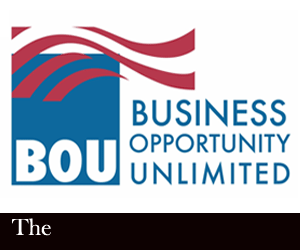How does one shop for a franchise? What factors should one consider before buying a particular franchise? Should one always go for the most popular brand? Should one go for the trendiest brand? These questions are pertinent because the success of a franchise business largely depends on finding the right franchise. The questions are also important because the fast food industry is not the only industry where franchising opportunity exists.There are at least ten factors that a prospective franchisee must consider and evaluate before buying a franchise. The list is by no means exhaustive and is in no particular order.
1. Evaluate Your Skills: You know your goals, your habits, your limitations, your educational and technological background and the skill-sets that you bring to the table. What is your experience as a business owner or manager? Will you need special training to run a particular franchise? What skill sets do you already have and which franchise can best maximize those skill sets? It would make little sense to invest in an automotive franchise if you know next to nothing about cars, are not excited about the auto industry, and cannot afford the time or money investment needed to acquire the necessary training.
2. Evaluate the Industry: Is the industry growing or declining? What are the future projections for the industry? Is the industry likely to become obsolete soon due, for example, to technological changes? Imagine the range of products and services that were once considered indispensable but have become obsolete or are about to become obsolete because of changes in technology. As products such as films (and film cameras), compact discs, records, VCRs, and landlines go, so do services associated with them. Conversely, one can think of products and services that are not presently in high demand but which may become very popular in the future as a result of technological and demographic changes. For example, with a growing middle class and a growing number of parents willing to spend money on the education, entertainment and overall development of their children, kids’ franchises (e.g. educational franchises, child care franchises, fitness franchises) could become winners in India in the near future.
3. Evaluate the Economy: When the economy is robust and more and more middle class are created, this typically translates into more options for prospective franchisee because more people have the money to spend on services that may have once been considered luxuries. For example, in a thriving economy, services such as pet care and services, coffee shops, ice-cream shops, and fitness/nutrition services can be good options for a prospective franchisee. Conversely, when the economy is weak or unpredictable, prospective franchisees may be better of choosing recession-proof brands. Recession-proof brands offer services that people always need regardless of the state of the economy such as child-care, elder-care, and health-care.
4. Evaluate the Demand: Is there a demand for the product and service that a given franchise is offering? A franchise must and should make sense in the domestic market where a prospective franchisee hopes to operate. A prospective franchisee should pay attention to products and services that people cannot afford to live without (e.g. child care and healthcare) as well as luxuries that have become more affordable to a growing middle class (e.g.fitness). Regarding the sectors or industries with greatest opportunities for franchising, this will vary from country to country.What is working in the United States may not necessarily work in India.
5. Evaluate Local Culture, Tastes, and Habits. Consider South-South Franchising Opportunities: In thinking about franchising in India, it is important to remember that the culture and taste of consumers in developed countries may be different from those of consumers in Africa. The best performing franchising sectors in Brazil in 2007, in terms of revenue growth, were not necessarily the best performing sectors in the US but were personal accessories and footwear (24.4%), other retail business and services (24.2%), and information technology (IT) services (20.4%). The question to ask is what will work given local tastes and habits.
6. Evaluate the Competition.Danger of Being the First or Last in Line: Competition is good for business and for consumers. However, excessive competition may completely wipe out the profit expected from a franchising deal. Is the demand for the product and service undercut by competition from other businesses that offer similar products and services?Given the rise in on-line business, competition can be local, regional, national and even international. Competition can also come from other franchisees in a franchisor’s network or even from company-owned outlets. A prospective franchisee must evaluate fully the level of competition to expect in a given industry and with a given franchise.While caution suggests that it is better to go for a known and proven brand, new brands get into the market every day and many are doing remarkably well.
7. Evaluate the Brand. What do you know about the quality and reputation of the brand that you are considering? Does the brand have a good track record? It is important to consider the quality and reputation of the brand in the franchisor’s home country as well as in other markets that the franchisor is operating in. When considering a brand what factors must one consider? At least four.
8. Evaluate Affordability and Credit Availability. What can you afford? One’s franchising goals depend largely on what one can afford. There are several questions to consider. How much does a particular franchise cost? Do I have access to financing? Does the government provide any kind of financing opportunity? Are bank loans accessible and available? These questions are important because lack of funds is one of the top reasons franchisees go out of business. Access to capital can affects franchising decision in at least three ways. First, Affordability and credit availability will determine the sector/industry you can get into. For example, hotel franchises are inherently much more expensive than fast food franchise or a dating service franchise.
9. Evaluate the Franchisor: While a brand may be a good quality brand, the franchisor may be going through turbulent times, may be involved in multiple law suits brought by past and present franchisee, may be in bankruptcy, or may simply be caught up in a number of issues that can affect and ultimately destroy a franchise arrangement.A prospective franchise must therefore carefully research the franchisor. In some countries it is very easy to evaluate the franchisor because of mandatory disclosure laws.
10. Evaluate Your Team. Do you Have a Winning Team? Can you Put Together a Winning Team? Do you have a team of professional advisers (lawyers, accountants, etc.) that can help you with the legal, business, and financial aspects of a franchising deal? Do you have a cohesive team that can help you make your franchise a success once the deal is concluded and the agreements are signed? When one is thinking of a cohesive team one has to consider employees, suppliers, investors, business partners and even one’s family.































 +91 9909960054
+91 9909960054
Pingback: Dinesh (Tripura)
Pingback: John Tyson
Pingback: Vishal Sharma (delhi)
Pingback: Manish Dubey(kerela)
Pingback: Tanya Gupta